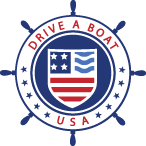Boating Under the Influence Laws in New York State
While recreational boaters and passengers over the age of 21 are permitted to drink while boating in New York, operating a vessel under the effects of alcohol can have serious consequences. Not only are there strict legal limits that carry severe penalties when contravened, but intoxication can seriously impair your ability to operate a vessel effectively and react quickly in dangerous situations.
Is it illegal to operate a boat under the influence in New York?
New York boating laws prohibit operating a fully or partially-motorized vessel while impaired, intoxicated or under the influence of alcohol or drugs. Recreational boaters are considered to be under the influence of alcohol if they have a blood alcohol content (BAC) of 0.08% or greater. The threshold is even more severe for commercial boaters, with just 0.04% BAC enough to warrant a boating under the influence (BUI) conviction.
It is also illegal to operate a vessel while impaired by alcohol, meaning that even if a boater’s BAC level is below 0.08% or they refuse to submit to a BAC test, they can still be convicted of an offense.
The four classifications of offenses for boating while under the effects of alcohol or drugs in New York are as follows:
- BWAI alcohol (boating while ability impaired by alcohol): for those impaired to any extent by alcohol
- BWAI drugs (boating while ability impaired by drugs): for those impaired to any extent by drugs
- BWI (boating while intoxicated): for those significantly impaired by drugs or alcohol
- Per se BUI (boating under the influence): for those found to be operating a boat with a BAC over the limit
Penalties for boating while intoxicated in New York
Penalties depend on which classification the boater is convicted of and whether they have any prior BUIs or DUIs. Having a BUI conviction does not currently threaten your driver’s license, but it does count as a prior if you are found guilty of a driving offense, and vice versa.
BWAI alcohol
- The first offense is considered a violation. It carries $300 to $500 in fines, up to 15 days in jail, or both.
- The second offense in five years is considered a misdemeanor. It carries $500 to $750 in fines, up to 30 days in jail, or both.
- The third offense in ten years is considered a misdemeanor. It carries $750 to $1,500 in fines, up to 180 days in jail, or both.
Anyone who is convicted of a BWAI alcohol will not be allowed to operate a boat for 6-12 months, regardless of prior convictions.
BWAI drugs, BWI and per se BUI
- The first offense is considered a misdemeanor. It carries $500 to $1,000 in fines, up to 1 year in jail, or both.
- The second offense in ten years is considered a felony. It carries $1,000 to $5,000 in fines, up to 4 years in prison, or both.
- The third offense in ten years is considered a felony. It carries $2,000 to $10,000 in fines, up to 7 years in prison, or both.
First offenders will not be allowed to operate a boat for 1 year. Those with priors will have their boat operator privileges suspended for 2 years.
The effects of intoxication on boating performance
Even small quantities of alcohol or drugs can have a major impact on a boater’s ability to function effectively on the water. These substances can affect your judgement, coordination and ability to accurately perceive speed and distance. They can make it difficult to concentrate and result in slower reaction times.
If you are unexpectedly immersed in water, having alcohol in your system will increase disorientation, accelerate hypothermia and lower your chances of survival.
Considering these effects, it’s best to abstain entirely or consume alcohol very sparingly when operating a boat.
Learn more about boating laws and safety with Drive a Boat USA
There’s a lot that recreational boaters need to know in order to remain safe and in compliance with state law while on the water. To that end, the State of New York is currently implementing a requirement for recreational boaters to take a safety course and obtain certification to operate a motorized vessel. All boaters will need to obtain their New York safe boating certificate by 2025.
Get certified online with Drive a Boat USA’s NASBLA-approved boater safety course, and don’t forget to take your best judgement with you on your boating adventures!

